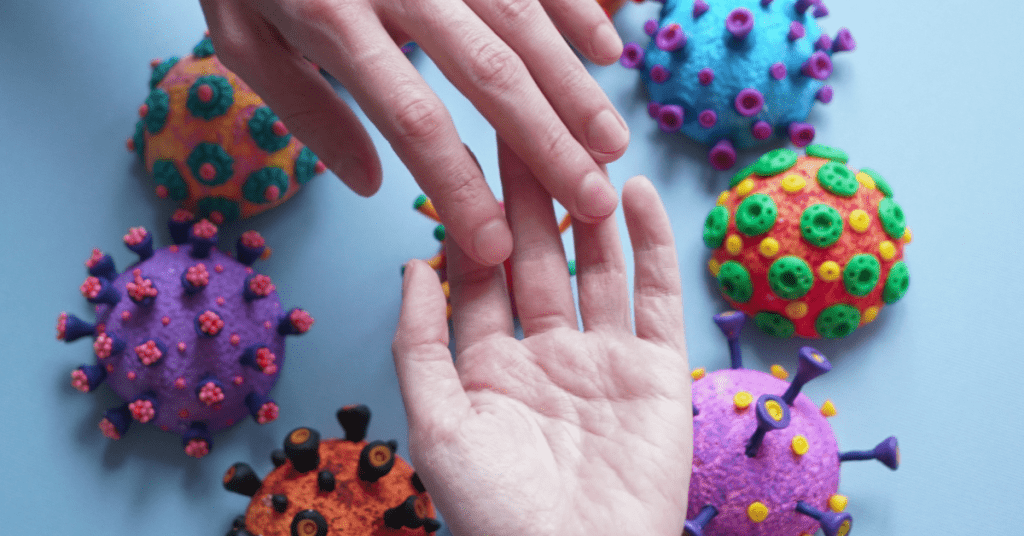Human Metapneumovirus (HMPV) is a significant respiratory virus that has been recognized as a leading cause of respiratory infections worldwide. Though relatively lesser-known compared to viruses like the flu or RSV (Respiratory Syncytial Virus), HMPV has a substantial impact on public health, especially among young children, older adults, and individuals with weakened immune systems.
we’ll provide an in-depth overview of HMPV, its symptoms, how it spreads, the risks it poses, and how you can protect yourself and your loved ones.

What is Human Metapneumovirus (HMPV)?
HMPV is a virus that primarily affects the respiratory system. It belongs to the Paramyxoviridae family, which also includes other respiratory viruses like RSV and the measles virus.
Since its discovery in 2001, researchers have found that HMPV is responsible for a large number of respiratory infections, particularly during the late winter and early spring months.
Key Facts About HMPV
- It can infect individuals of all ages.
- It causes both upper and lower respiratory tract infections.
- It is highly contagious and spreads quickly in community settings.
Symptoms of HMPV
HMPV symptoms can range from mild to severe, depending on the individual’s age, health status, and immune response.
Mild Symptoms
- Runny or stuffy nose
- Sore throat
- Cough
- Mild fever
- Fatigue
Severe Symptoms
In some cases, HMPV can lead to serious complications like:
- Bronchitis: Inflammation of the airways in the lungs.
- Pneumonia: Infection that inflames the air sacs in one or both lungs.
- Wheezing or breathing difficulties: Often observed in children or those with chronic lung conditions.
Severe symptoms are more common in high-risk groups such as:
- Infants and young children
- Elderly individuals
- People with chronic illnesses like asthma or COPD
- Immunocompromised individuals
How Does HMPV Spread?
HMPV spreads in ways similar to other respiratory viruses. Key transmission methods include:
- Direct Contact: Touching an infected person, such as through handshakes, hugs, or kisses.
- Respiratory Droplets: Inhaling droplets from coughs or sneezes of an infected individual.
- Contaminated Surfaces: Touching surfaces or objects that have the virus on them and then touching your face.
- Crowded Places: Spending time in densely populated areas like schools, offices, or public transport increases exposure risk.
The virus is most contagious during the symptomatic phase but can spread a day or two before symptoms appear.
Who is Most at Risk?
While HMPV can affect anyone, certain groups are more vulnerable to complications:
- Children under 5 years old: Their developing immune systems make them more susceptible to infections.
- Older adults (65+ years): A natural decline in immunity increases the risk of severe disease.
- Individuals with chronic medical conditions: Conditions like asthma, heart disease, or diabetes heighten the risk.
- Immunocompromised individuals: Those undergoing chemotherapy, organ transplants, or living with conditions like HIV/AIDS are at higher risk.
Diagnosis of HMPV
HMPV infections often mimic the symptoms of other respiratory illnesses, making diagnosis challenging without medical tests. Healthcare providers may use the following methods to confirm HMPV:
- Physical Examination: Checking for signs like wheezing, fever, or difficulty breathing.
- Nasal or Throat Swabs: Samples are taken to identify the virus through laboratory testing.
- Chest X-rays or CT Scans: Used in severe cases to check for complications like pneumonia.
If you or a loved one has persistent respiratory symptoms, it’s essential to consult a doctor for proper diagnosis and treatment.
Treatment Options for HMPV
Currently, there is no specific antiviral treatment or vaccine for HMPV. However, supportive care can help manage symptoms and reduce complications:
Home Care Tips
- Stay hydrated: Drink plenty of fluids to prevent dehydration.
- Rest: Allow your body to recover by avoiding strenuous activities.
- Use over-the-counter medications: Pain relievers and fever reducers like acetaminophen or ibuprofen can ease discomfort.
Medical Care for Severe Cases
For severe cases involving breathing difficulties or other complications, hospitalization may be necessary. Treatment may include:
- Oxygen therapy: To improve oxygen levels in the blood.
- Mechanical ventilation: In rare cases, for patients with severe respiratory distress.
How to Prevent HMPV Infection
Prevention is the best way to protect yourself and others from HMPV. Here are some simple yet effective strategies:
- Wash Your Hands Regularly
Use soap and water to wash your hands for at least 20 seconds. If soap isn’t available, use an alcohol-based hand sanitizer. - Avoid Touching Your Face
The virus can enter your body through your eyes, nose, or mouth, so avoid touching your face, especially with unwashed hands. - Disinfect Surfaces
Clean frequently touched surfaces like doorknobs, smartphones, and countertops to eliminate the virus. - Maintain Good Respiratory Hygiene
Cover your mouth and nose with a tissue or your elbow when sneezing or coughing. Dispose of tissues immediately. - Stay Home When Sick
If you’re feeling unwell, avoid going to work, school, or crowded places to reduce the risk of spreading the virus. - Boost Your Immune System
Maintain a healthy diet, exercise regularly, and get enough sleep to keep your immune system strong.
Global Impact of HMPV
HMPV is a major cause of respiratory infections worldwide, with outbreaks commonly occurring during late winter and early spring. According to studies, HMPV accounts for a significant percentage of hospitalizations for respiratory illnesses, particularly in children under 5 and older adults.
Healthcare systems globally are working to develop vaccines and antiviral treatments for HMPV to reduce its impact. Until then, awareness and prevention remain key to managing the virus.
Human Metapneumovirus (HMPV) is a common but often overlooked respiratory virus that can cause a wide range of symptoms, from mild discomfort to severe complications. Understanding its symptoms, transmission methods, and preventive measures can help reduce its spread and protect vulnerable individuals.
If you or someone you know is experiencing persistent respiratory symptoms, seek medical advice promptly. For more information about respiratory illnesses or healthcare support, visit our Ask Questions page to get expert answers and guidance.
Stay informed and stay healthy!

